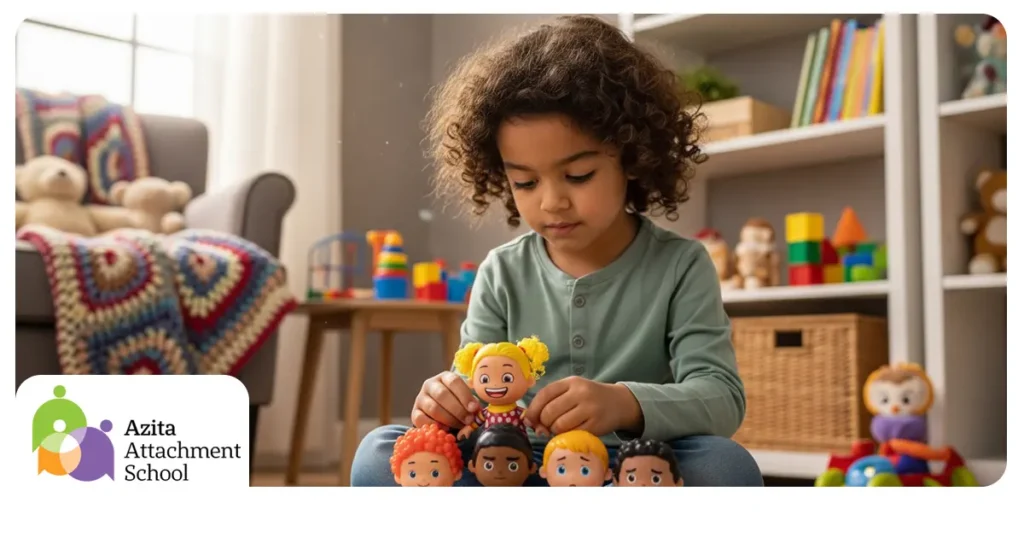Play is not just a way to pass time—it’s the language of childhood. Through play, children express emotions, process anxieties, and learn vital social skills that shape their future.
1. Play as Emotional Expression
A child punishing a doll or building a tall tower with blocks is not only “playing.” These are ways of expressing feelings they may not yet have words for. By observing these moments, parents gain unique insights into their child’s inner world.
2. Play and Emotional Regulation
Group games like soccer or hide-and-seek help children practice patience, cope with losing, and regulate frustration. These small lessons build resilience that benefits them in school, relationships, and adulthood.
3. Play and Attachment
When parents join in play, children feel seen and valued—laying the foundation for secure attachment. Just ten minutes of shared play each day can strengthen the parent-child bond and reduce a child’s anxiety.
4. The Parent’s Role
Parents don’t need elaborate toys or complicated games. A simple tickle, a silly story, or a quick game of “who finds it first?” can foster joy and emotional security. What matters most is the parent’s presence, not the activity itself.
Conclusion
Play is a powerful tool for emotional growth. When parents see play not as a distraction but as a pathway to development, they nurture emotionally balanced children while building deeper, more secure connections.


